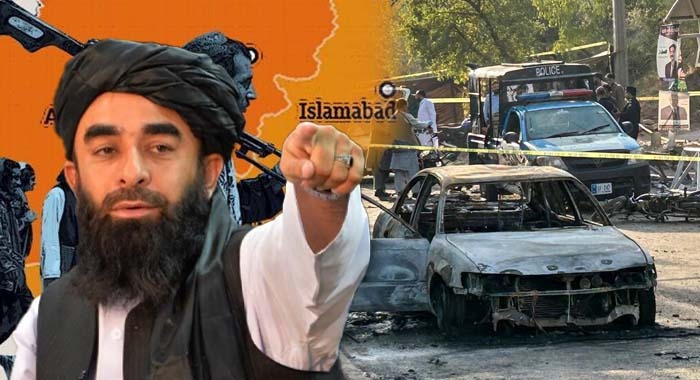Muhammad Haseenullah
The Afghan Taliban’s refusal to label the Tehreek-e-Taliban Pakistan (TTP) insurgency as terrorist or illegitimate has once again exposed their duplicity, deepened Islamabad’s security concerns, and highlighted the growing betrayal of a nation that has long been their most steadfast supporter.
According to Taliban negotiator Rahmatullah Najib, Pakistan’s delegation at the recent Istanbul talks asked Taliban leader Hibatullah Akhundzada to issue a fatwa declaring the ongoing TTP-led attacks inside Pakistan unlawful under Islamic law. Najib stated that Akhundzada “does not issue fatwas” and suggested that Pakistan submit its request to the Taliban’s Dar al-Ifta, warning that rulings are issued “according to Sharia principles, not political preferences.” He added that the Afghan Taliban “cannot declare the war in Pakistan either legitimate or illegitimate” and insisted the conflict “does not belong to the Taliban.”
Security analysts and officials in Islamabad say these statements defy both reality and basic morality. Over the past months, Pakistan has faced a surge of terrorist attacks, including the suicide bombing in Islamabad that killed at least 12 people, the deadly assault on Wana Cadet College, and near-daily attacks against KP Police, particularly in southern districts such as Bannu. Many of these assaults have been traced to militants operating from Afghan territory, making Kabul’s refusal to act a direct threat to Pakistani lives.
A Painful History of Ungratefulness
For decades, Pakistan has provided Afghanistan with unmatched humanitarian, political, and diplomatic support. Millions of Afghan refugees were sheltered in Pakistan, given food, healthcare, and education, and Islamabad consistently defended the Taliban’s position internationally—even when the global community isolated them.
Yet today, the same Taliban government refuses to condemn the groups responsible for murder and bloodshed in Pakistan. Officials argue that this is more than mere negligence: it is a betrayal of trust and an affront to Pakistan’s sacrifices.
“Pakistan has bled more than almost any other country fighting terrorism,” said a senior security source. “We asked for a moral and religious ruling to stop further killings, and instead, the Taliban choose silence. This is not neutrality—it is complicity.”
Hypocrisy Wrapped in Theological Claims
The Taliban claim that their leader issues “orders and decrees, not fatwas.” But critics point out the obvious contradiction: the same leadership has no issue issuing directives on political matters, yet remains silent on bloodshed, which Sharia explicitly forbids.
Islam requires protection of innocent lives and the safeguarding of neighbours. Yet the Taliban will not condemn cross-border attacks by the TTP, BLA, or other banned militant groups, some of which are Indian-backed, according to Pakistani intelligence. By avoiding a clear stance, the Taliban not only enable these groups but undermine their own credibility as self-proclaimed guardians of Islam.
Pakistan’s Security and Regional Stakes
The refusal to act against the TTP comes at a time when Pakistan faces repeated waves of terror across KP. Southern districts, particularly Bannu, have been under near-constant attack. Police forces and civilians alike are increasingly at risk, while Afghan-based militants operate with impunity.
Islamabad has repeatedly called for the TTP to be designated a terrorist organisation and expelled from Afghan soil. Global partners—including Turkey, Qatar, Iran, China, and Russia—have echoed Pakistan’s demands, highlighting the broader regional and international consensus that Afghan territory should not serve as a base for cross-border terrorism.
A Growing Tilt Towards Pakistan’s Adversaries
Security observers note that by failing to act against the TTP, the Taliban are indirectly siding with Pakistan’s enemies. There are also increasing signs that Afghanistan under the Taliban is cooperating, at least tacitly, with India-backed groups, including through political and technical channels, exacerbating tensions in the region.
This “two-faced” approach has angered Pakistani officials, who argue that Pakistan’s decades of support for Afghanistan, from refugee aid to political advocacy, deserve reciprocity, not betrayal.
Pakistan has long pursued peace and stability in its neighbourhood, often at great cost. Yet the Taliban’s refusal to label TTP violence as terror or unlawful exposes the gulf between rhetoric and action, and demonstrates how far Kabul has strayed from the values of solidarity and Islamic principles.
For Islamabad, this is not just a matter of politics: it is a question of lives, morality, and regional security. As attacks continue across KP, particularly in Bannu and other southern districts, Pakistan remains committed to defending its citizens. But the Taliban’s silence is a stark reminder that words, when absent, can be as deadly as bombs.





